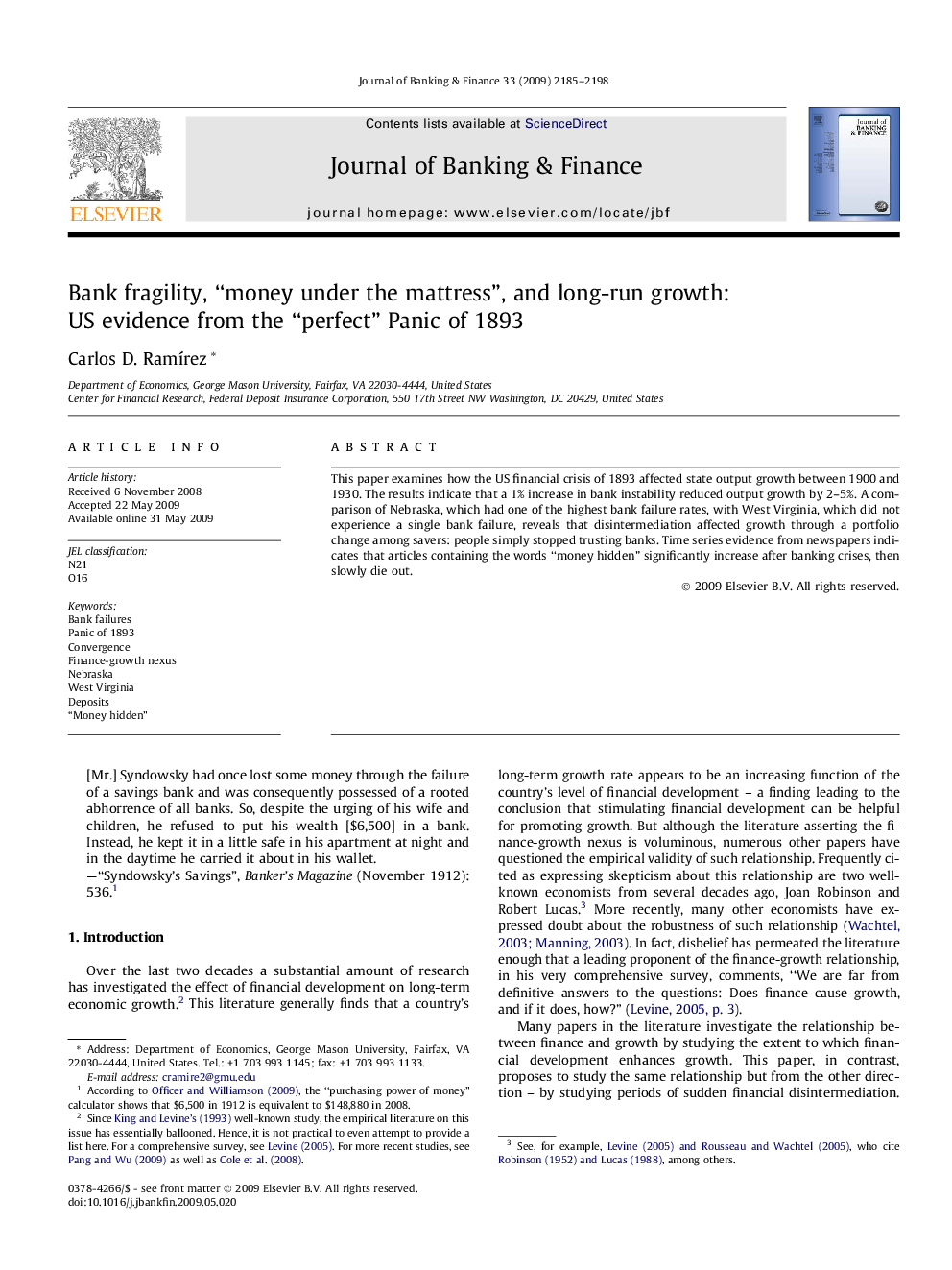| Article ID | Journal | Published Year | Pages | File Type |
|---|---|---|---|---|
| 5090352 | Journal of Banking & Finance | 2009 | 14 Pages |
Abstract
This paper examines how the US financial crisis of 1893 affected state output growth between 1900 and 1930. The results indicate that a 1% increase in bank instability reduced output growth by 2-5%. A comparison of Nebraska, which had one of the highest bank failure rates, with West Virginia, which did not experience a single bank failure, reveals that disintermediation affected growth through a portfolio change among savers: people simply stopped trusting banks. Time series evidence from newspapers indicates that articles containing the words “money hidden” significantly increase after banking crises, then slowly die out.
Related Topics
Social Sciences and Humanities
Economics, Econometrics and Finance
Economics and Econometrics
Authors
Carlos D. RamÃrez,
